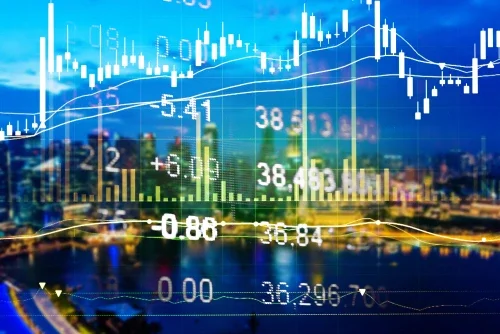
According to polls, more people believe in ghosts and astrology than in human progress, and they certainly don’t believe in the current economic system. A recent Institute of Economic Affairs study showed that young Brits mostly associate capitalism with global warming and terms such as ‘exploitative’ and ‘unfair’. I do understand why it feels like the world is going to the dogs. We have had 20 miserable years with economic crises, populism, the pandemic and now Putin’s invasion of Ukraine. It’s easy to despair.
But here is an interesting data point: these 20 miserable years have also been the best 20 years in human history. Yes, really. Objective indicators of human living standards have never shown as much progress as we’ve seen in recent years.
If we measure wealth production by average GDP per capita, roughly half of all the wealth that humankind has ever been able to produce was produced in the past two decades, adjusted for inflation. Over the same period, global extreme poverty was reduced by around 100,000 people – every day. The global child mortality rate almost halved, so 4.4 million fewer children died in 2022 than in 2002.
Capitalism and problem-solving
How did things turn out so well while everything was going wrong? Because human beings are problem solvers and adapt their behaviour to new circumstances – as long as intrusive governments don’t stop them from doing so.
For example, you don’t need to look any further than your local supermarket. Do you remember stockpiling canned food and toilet paper when the world closed during the first days of the pandemic? I know, it’s embarrassing to admit now, because the shelves were stocked again in just a few days. But that restocking was a remarkable feat.
The food industry was shaken by a perfect storm. New trade barriers were created and most of the workforce had to stay home. Deliveries to the restaurant industry collapsed, while demand for other food supplies soared when shoppers became preppers.
The incredible thing about your local supermarket was that almost nothing happened. Through round-the-clock work to change suppliers, reallocate labour, adjust production methods and redirect transportation, the food industry managed to rebuild global supply chains in just a few weeks.
This was not done by command and control. It worked because it was not a centralised process. Each adjustment was based on local knowledge of what could be done in a particular business with the available raw materials and the workforce present – and what they could stop doing without creating worse shortages elsewhere.
[See also: This wealth management firm wants a ‘completely different rulebook’ for capitalism]
As the great American poet and transcendentalist Henry David Thoreau wrote in 1849, trade and commerce seem to be made of rubber; they always ‘manage to bounce over the obstacles which legislators are continually putting in their way’.
We have seen the same thing after Putin’s attack on Ukraine. Obviously, food prices shot up when one major exporting nation invaded another, but then – quickly – they fell back. Not just because of the agreement that allowed Ukraine to export some grain, but also because farmers around the world responded to rising prices with increased production. Today, global food prices are 18 per cent lower than before the war.
In the energy market, too, price signals have worked as economic textbooks predicted: as prices rose, incentives were created for more electricity generation and LNG terminals, while households and industries reduced consumption. Spot prices on the European gas market are now 80 per cent lower than they were at their peak in August 2022 (also helped by the mild winter).
[See also: New and upcoming book releases for spring/summer 2023]

What capitalist markets have taught us
The lesson is that, in times of crisis, we need free markets more than ever. When the world is changing in unpredictable ways, people and businesses need maximum freedom to adapt. Price controls and protectionism only delay adjustment in dangerous ways.
Indeed, capitalism is also the solution to many of the problems for which it is often blamed. Look at global warming. Around 50 countries have recently managed to reduce CO2 emissions while growing their economies. These 50 economies just happen to be the world’s freest and wealthiest countries, with the most developed market economies.;
So the world is getting better, faster than ever, when people are free to experiment with new solutions and innovations in unpredictable ways. And that is exactly what populists of the left and the right would stop with their proposed top-down solutions to all our problems. That’s why they always make me think of the person at the job interview:
‘It says in your CV that you are quick at mathematics. What is 17 times 19?’ ‘Sixty-three.’ ‘Sixty-three? That’s not even close!’ ‘No, but it was quick.’
The Capitalist Manifesto: Why the Global Free Market Will Save the World, by Johan Norberg, will be published by Atlantic Books on 15 June.






